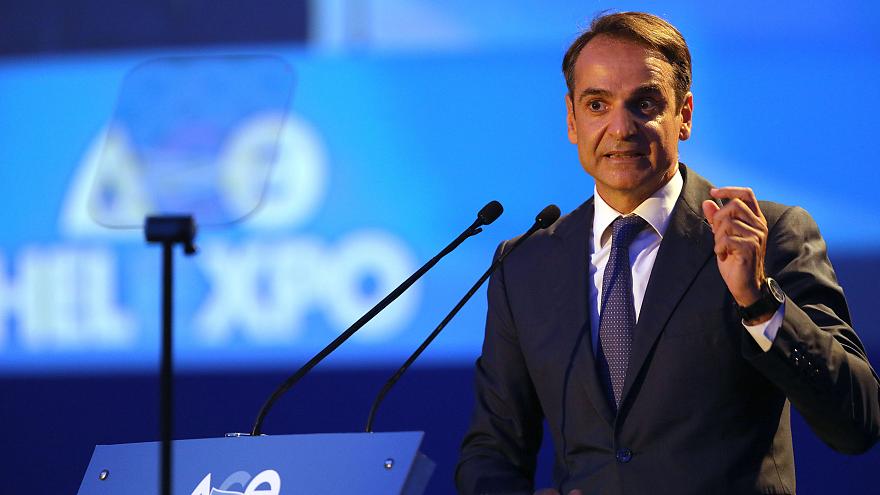
The government seeks the exit of Greece from the post-memoranda supervision, in an effort to fully regain the reins of economic policy-making, until the election of 2023.
The government’s financial staff is dominated by the notion that the “uncoupling” should take place within the next year, which will again be “loose” in terms of budget, as the Stability Pact will not apply again, based on current data.
However, the crucial question is what will happen in 2023, when we return to fiscal normalcy.
Surpluses
The need has already been expressed, at least by the ESM, to return to primary surpluses. This has been pointed out by the Minister of Finance, Christos Staikouras, and he even included it in the text of the Stability Program, which he sent to the Commission at the end of last month.
But the key issue is determining the amount of primary surpluses. The more freedoms Greece has, the easier it will be to negotiate on the target.
From 2023 the Greek economy will return to primary surpluses, 2% in 2023 and 2.9% in 2024, according to the Stability Program, ie below 3.5% of GDP projected for our country for next year , as a post-memorandum commitment.
Thus, along with the issue of lifting enhanced supervision, the New Democracy government wants to open the issue of fiscal targets that will return from 2023, for all Member States.
Certainly, the high debt of the country, which is over 200%, is not a bargaining chip, but this time Greece is not responsible, as the economic issue is global and concerns many European countries, such as Italy, Spain, France, and Portugal.
Election horizon
Beyond that, the government wants to formulate its own policy, as let us not forget the fact that 2023 is an election year and the prime minister wants (or at least says this to his interlocutors and publicly) that he wants to exhaust the 4 year mandate.
The lifting of the post-memorandum supervision will give the government room to move, with the elections on the horizon, without having to talk to the heads of the Institutions every 3 months.
The government wants to have only the European Semester, which applies to all countries, but also the control for the Recovery Fund, which concerns investment plans, which it is also promoting, but also reforms, which it has chosen.
The agreement
But let us look at what the agreement with the institutions, which took place in July 2018, provided for. The agreement provided that on the one hand the enhanced surveillance regime would be renewed every six months and on the other hand in the middle of 2022, four years after its imposition, there would be a new discussion on the issue.
This is because the Commission is obliged at this point in time to make a report, which will decide whether Greece should continue to be under enhanced surveillance or not, once the country has completed its commitments in the following areas: Fiscal policy, social welfare, financial stability, the improvement of the business environment, the full operation of the Holdings and Property Fund and the modernization of the administrative structure of the public sector.
At the moment, the completion of the bankruptcy code (essentially starting from June 1), the zeroing of overdue public debts, the creation of a primary health care system and the digitization of justice remain pending.
The government estimates that all of the above will be completed by the beginning of next year, which will enable the Commission to lift any post-memorandum restrictions.
Latest News

New Exposé by Domumento Reveals Nefarious Triangular Link of ‘Black Money’ with New Democracy, Blue Skies, & Truth Team
The latest exposé by the Documentonews.gr news site lays bare what appears to be a surreptitious path of indirect financing of ND through the business sector—transactions that, as widely understood, rarely occur without expectations of reciprocal benefit

PM Meloni Meets Vice President Vance in Rome Signalling Optimism on Ukraine Talks
Meloni emphasized the strength and strategic value of the Italy-U.S. partnership.

Airbnb: Greece’s Short-Term Rentals Dip in March Amid Easter Shift
Data from analytics firm AirDNA shows that average occupancy for short-term rentals dropped to 45% in March, down from 49% the same month last year.

Easter Week in Greece: Holy Friday in Orthodoxy Today
At the Vespers service on Friday evening the image of Christ is removed from the Cross and wrapped in a white cloth

Meloni and Trump Meet in Washington, Vow to Strengthen Western Ties
“I am 100% sure there will be no problems reaching a deal on tariffs with the EU—none whatsoever,” Trump stressed.

ECB Cuts Interest Rates by 25 Basis Points in Expected Move
The ECB’s Governing Council opted to lower the deposit facility rate—the benchmark for signaling monetary policy direction—citing an updated assessment of inflation prospects, the dynamics of underlying inflation, and the strength of monetary policy transmission.

Current Account Deficit Fell by €573.2ml Feb. 2025: BoG
The improvement of Greece’s current account was mainly attributed to a more robust balance of goods and, to a lesser extent, an improved primary income account

Hellenic Food Authority Issues Food Safety Tips for Easter
Food safety tips on how to make sure your lamb has been properly inspected and your eggs stay fresh.

Greek Kiwifruit Exports Smash 200,000-Ton Mark, Setting New Record
According to data by the Association of Greek Fruit, Vegetable and Juice Exporters, Incofruit Hellas, between September 1, 2024, and April 17, 2025, kiwifruit exports increased by 14.2%.

Easter Tourism Boom: Greece Sees 18.3% Surge in Hotel Bookings
Among foreign markets, Israel has emerged as the biggest growth driver, with hotel bookings more than doubling—up 178.5% year-on-year.







![Πλημμύρες: Σημειώθηκαν σε επίπεδα ρεκόρ στην Ευρώπη το 2024 [γράφημα]](https://www.ot.gr/wp-content/uploads/2025/04/FLOOD_HUNGRY-90x90.jpg)





![Airbnb: Πτωτικά κινήθηκε η ζήτηση τον Μάρτιο – Τι δείχνουν τα στοιχεία [γράφημα]](https://www.ot.gr/wp-content/uploads/2024/07/airbnb-gba8e58468_1280-1-90x90.jpg)











![Επιχειρήσεις: Με τι επιτόκιο δανείζονται – Πώς θα ξεκλειδώσει περισσότερη ρευστότητα [γράφημα]](https://www.ot.gr/wp-content/uploads/2025/04/daneia-trapezes-768x432-1-600x338.jpg)














 Αριθμός Πιστοποίησης
Αριθμός Πιστοποίησης